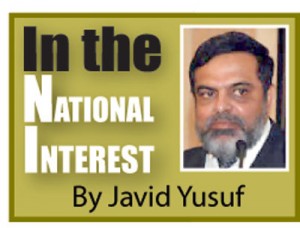News
Abolition of Executive Presidency- A glimmer of hope again
View(s):It is a rather tragic irony, that one of the Constitutional pillars, considered an impediment to the growth and development of a democratic society in Sri Lanka, namely the institution of the Executive Presidency (EP), continues to survive, despite the near unanimous agreement among all political parties and indeed, across society at large, that the country will be well served by getting rid of this institution.
All political parties, including the UNP, SLFP, JVP and other left parties have, at different times, articulated and agreed to support the abolition of the EP, but desisted from doing so, when the opportunity arose.
President Maithripala Sirisena and Prime Minister Ranil Wickremesinghe came together on January 8, 2015, on a platform to abolish the EP.
Although initial steps were taken through the 19th Amendment (19A), to fulfil the election pledge, the Supreme Court ruling on 19A, requiring some clauses to be passed with a two-third majority and a referendum, put on hold the process of doing away with the EP, with the Government deciding instead, to do so by opting for a comprehensive Constitutional Reform (CR) process.
The CR process was long drawn out, with the Government bogged down with other issues that required its attention. With changes in the country’s political environment and the lack of cooperation from the main Opposition, the process was further delayed and could not be completed. The Government itself, had not learned a lesson from past experiences, that any successful CR process had the best chance of success, if completed within the first two years of the Government assuming office.
The First Republican Constitution was adopted and in place by 1972, within two years of the Sirimavo Bandaranaike Government assuming office in 1970. The J.R. Jayewardene Government succeeded in putting in place the Constitution which installed the EP in 1978, within one year of assuming office in 1977.
The Chandrika Bandaranaike Government failed in its efforts at CR, because it took 6 years to present the 2000 Constitution, after assuming office in 1994. The fact that it took so long to build consensus among political parties and within the country at large, did not help it to overcome the incumbency factor, which had set in, as it was the tail end of the Government.
With the process of CR of the Yahapalana Government taking a considerable period of time, the JVP took the laudable step of presenting the 20A designed to abolish the EP. However, after some initial flurry, the JVP, suddenly, seemed to lose its enthusiasm for its own initiative, and did little to take the process forward.
This seemed all the more surprising, because the JVP had been one of the few political parties that had consistently and strongly advocated the abolition of the EP. If 20A was presented in Parliament, there was a reasonable chance of it being passed with a two-thirds majority, with the UNP and the Joint Opposition compelled to take a stand. If it was passed with a two-third majority, it is likely, that the country would have endorsed 20A at a Referendum.
If 20A was passed, the JVP would be entitled to claim the credit, as it did in the case of the 17A, which first introduced the Independent Commissions. If 20A was defeated, the JVP could have claimed the credit for at least trying. However, as mentioned earlier, the JVP showed little interest in taking the matter forward.
It is in this context that the news, that Premier Wickremesinghe met President Sirisena on August 26 to explore the possibility of pursuing the abolition of the EP, gives rise to a glimmer of hope. After the meeting, the Premier had broached the subject with JVP Leader Anura Kumara Dissanayake and promised the UNP’s support, if the JVP moved in the matter of 20A. According to reports, the JVP leader had suggested that the Government move in the matter and the JVP would support the Government.
President Sirisena himself referred to CR in Jaffna on Friday. He urged the abolition of the EP and called for the adoption of a new Constitution.
He stressed it was the responsibility of the Government and the Opposition to get together and ensure it is done. The President, for his part, promised to give his unstinted support to achieve this goal.
It is time for the country to seize the moment and work towards this goal. The President and Prime Minister should not confine their efforts to merely meeting each other and exploring the possibility. It is time for both leaders to give leadership and undertake a rigorous process of negotiation towards achieving this goal. In this task, they could enlist the services of a team of civil society leaders to facilitate such negotiations.
If they succeed now, the Yahapalana Government would have succeeded in delivering on one of their key pledges. They would also save the country the costs of an expensive Presidential Election and an acrimonious and polarising Election campaign. With the Presidential Elections looming on the horizon, some political parties may not agree to the abolition of the EP, because of some political advantage they may gain by retaining the Institution.
The decision that political parties take now will, undoubtedly, be a test of whether they give priority to the National Interest or to short term political gain. If the EP is not abolished now, it will be another missed opportunity for the country.
(javidyusuf@gmail.com).

